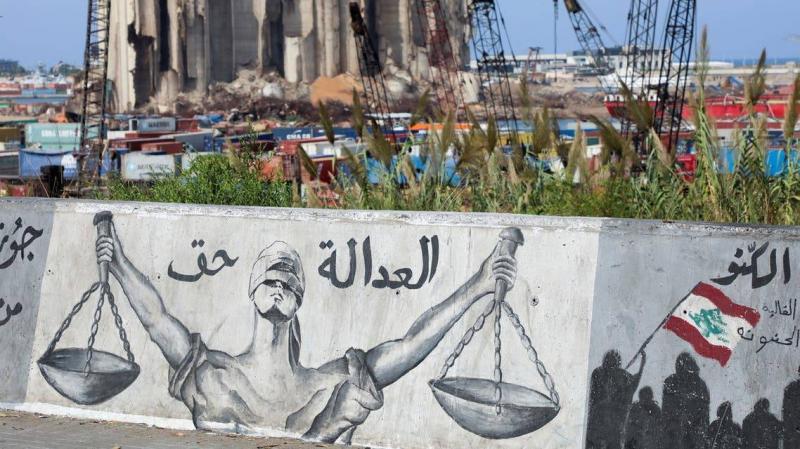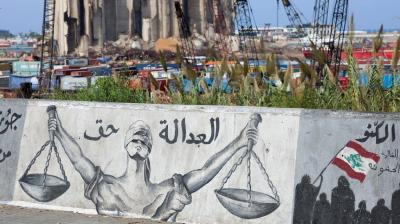The newspaper Asharq Al-Awsat reported: The Lebanese government has tasked the Council for Development and Reconstruction with supervising the demolition of the wheat silos that were damaged due to the Beirut port explosion. The Ministry of Culture and the Ministry of Interior have also been assigned to establish a memorial in honor of the victims.
The Lebanese government held a meeting yesterday chaired by President Michel Aoun, with the presence of Prime Minister Najib Mikati and the ministers. At the beginning of the session, Aoun reiterated that "elections will take place on schedule after additional budget approvals," noting that "the Minister of Finance should expedite the procedures for transferring funds to the relevant ministries." He also discussed "the importance of Pope Francis's visit to Lebanon scheduled for next June, nationally, spiritually, and humanely," emphasizing that "quick actions are needed to approve important banking and financial matters before the end of the parliamentary term and the resignation of the government."
The Prime Minister stated that "despite all the negative atmosphere being spread, we are convinced that we are doing all the necessary work." He confirmed "commitment to hold the elections on time," considering that "the initial agreement with the IMF has put the train on the track for a solution." He said: "Many stations are expected, but with our insistence and follow-up, we can get the country out of the economic crisis we are experiencing." He pointed out that "if Lebanon regains confidence in its economy, its recovery will be much quicker." He expressed his belief in "the possibility of restoring confidence, with the cooperation of everyone, the government, parliament, and all leaders and stakeholders for salvation." A ministerial committee was formed by the government, chaired by Tourism Minister Walid Nassar, to prepare for Pope Francis's visit to Lebanon next June.
After the session, Minister of Information Ziad Makari read the decisions taken, mentioning that the Deputy Prime Minister Saadeh Shami presented the preliminary agreement with the IMF, where ministers were asked to submit their proposals within a week for the topic to be raised again at the government table, similarly to the item regarding banking secrecy. He indicated that the Cabinet approved referring the borrowing bill to parliament and the use of $15 million from special wheat withdrawals, $13 million for medicine, and $60 million for electricity.
He announced the approval "of the recommendations of a committee headed by the Minister of Justice" to demolish the damaged silos at the Beirut port due to the explosion, stating: "We have mandated the Council for Development and Reconstruction to supervise the demolition process without specifying a date."
The government's decision, made mid-last month, was based on a technical report prepared by the engineering consultancy firm Khattab and Al-Aalami, which stated, according to Makari, that "the silos could collapse in a few months." He clarified that keeping them poses risks to public safety, while "repairing them would cost a lot." A year ago, Aman Engineering, a Swiss company that surveyed the silos, estimated that the structures "tilt at a rate of 2 millimeters per day, which is significant from a structural standpoint."
Lebanon began building the silos in the late sixties thanks to a loan it received at the time from the Kuwaiti Fund for Economic Development. The silos stand at a height of 48 meters and have a massive storage capacity of over 100,000 tons, according to experts, enabling them to absorb most of the explosion's impact and protecting the western part of the capital from greater destruction.
The government tasked the Ministries of Interior and Culture with "establishing a memorial in honor of the port martyrs," according to the Minister of Information, in an attempt to appease the anger of the families of the explosion's victims. Notably, a committee representing the victims' families deemed such a decision as "unjust," stating in a declaration last month that "the silos are evidence of your massacre, and they will not be demolished no matter what methods you try."




